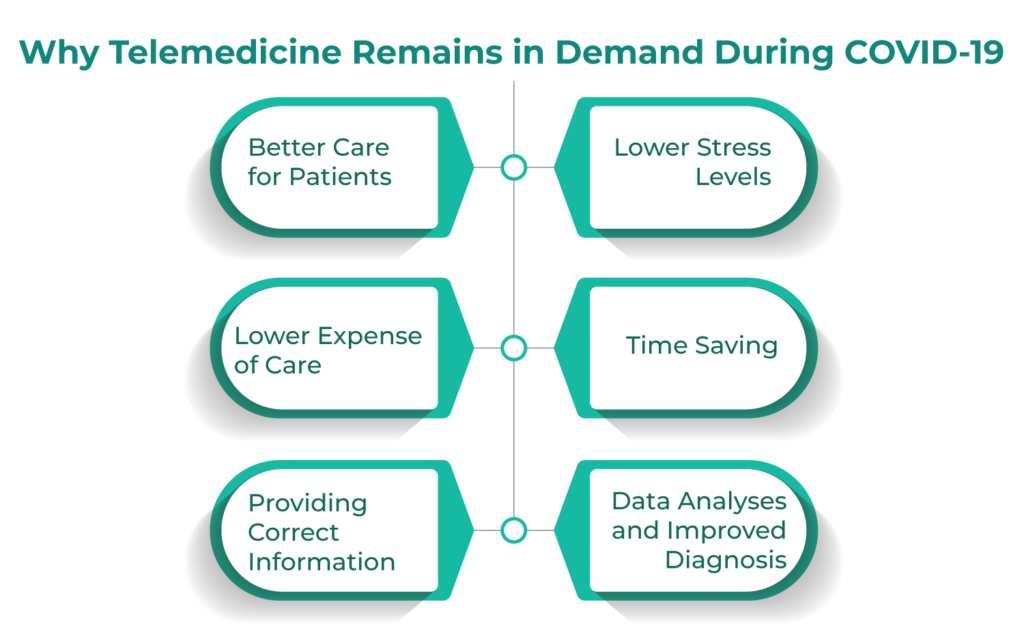Introduction To DEA Telemedicine and HHS Extend Telemedicine Flexibilities
The Drug Enforcement Administration or DEA telemedicine and the Department of Health and Human Services (HHS) are two healthcare organizations. Both of them played a significant role during COVID-19. As the COVID-19 virus spread suddenly and the number reached more than 6 lakh cases every day before December 2020, the DEA and HHS decided to suspend in-person consultations and come up with telemedicine software in the healthcare sector. This helps doctors to provide high-quality, personalized treatments to all patients.
Later on, the DEA and HHS extended the telemedicine software flexibilities through November 11, 2023. Further, the flexibilities are extended to December 31, 2024, which made everyone curious to know about it in detail. Today, this article is a complete guide about DEA and HHS extending telemedicine flexibilities through 2024. Here we go!
Table of Contents
- What is Telemedicine in the Healthcare Industry and its Role During the Covid-19?
- 1. Establishment of Telemedicine Flexibilities During the COVID-19
- 2. First Temporary Extension of Telemedicine Flexibility Until November 11, 2023
- 3. Second Temporary Extension of Telemedicine Flexibilities Until December 31, 2024
- 4. Proposed Permanent Telemedicine Flexibilities Under Consideration
- 5. Why Telemedicine Remains in Demand During COVID-19
- Commonly Asked Questions (FAQs)
- How Can VCDoctor Help?
- Wrapping Up!
What is Telemedicine in the Healthcare Industry and its Role During the Covid-19?
Telemedicine is an online platform where people from the medical industry and patients can communicate easily. They can share problems and formulate a personalized treatment plan for betterment. Because this app uses electronic technology, you can exchange information.
By using this, you can book an appointment online by checking your doctor’s schedule. You can have a virtual conversation and get solutions using a desktop or phone. As a result, it eliminates the need for the patient and the doctor to be physically present, making things easier.
Some key aspects of DEA telemedicine in the healthcare sector include:
1. Remote consultations, as patients can contact healthcare providers and experts virtually.
2. Your health experts can track any chronic condition, symptoms, recovery progress, and more using remote patient monitoring devices.
3. For doctors as well as patients, telemedicine is a cost-effective way to get healthcare solutions.
1. Establishment of Telemedicine Flexibilities During the COVID-19
According to The Ryan Haight Online Pharmacy Consumer Act of 2008, the healthcare expert, the doctor, and the patient must be available in person during the consultation and treatment process. During the spread of COVID-19 in 2019, this act was abandoned as social distancing was followed worldwide, where it was impossible to visit healthcare clinics as the chances of contracting the coronavirus existed.
In order to solve the healthcare needs, DEA and HHS suspended this in-person evaluation on January 31, 2020. During this time, around 20,000 cases were positive everyday. Later, the number increased to 50,000 cases everyday by March, 2020. As a result, DEA telemedicine software and applications were used to offer healthcare services. The purpose of this rule was to ensure that the rule about social distancing is followed widely.
Additionally, it restricted the chances of a virus getting transmitted any further, saving the lives of millions. From May 11, 2023, to November 11, 2023; the DEA and HHS extended the telemedicine flexibilities.
2. First Temporary Extension of Telemedicine Flexibility Until November 11, 2023
On May 11, 2023, the covid-10 PHE expired. In order to ensure that all patients are protected and under doctors’ supervision, the DEA and HHS extended the telemedicine flexibility until November 11, 2023. This extension was made after thoroughly reviewing all the ensuing comments.
The first temporary rule also involved a year-long grace period, which started from November 11, 2023, to November 11, 2024. This grace period allows the healthcare expert to prescribe controlled substances or medication through telemedicine without in-person meetings or patient evaluations. This also means that any doctor-patient relationship built after this date will need an in-person consultation before any controlled medications are provided.
On the 12th and 13th of September, 2023, the DEA conducted some major sessions to gather feedback about telemedicine flexibility and extension. As November 11, 2023, and the expiry of the first temporary extension of DEA telehealth flexibility were coming to an end, a further extension was required. As per the latest update, the DEA and HHS announced the second temporary extension on October 6, 2023, which will last until December 31, 2024.
3. Second Temporary Extension of Telemedicine Flexibilities Until December 31, 2024
As mentioned earlier, the DEA and HHS announced the second temporary extension on October 6, 2023. According to the latest extension, the COVID-19 PHE flexibilities are extended till December 31, 2024. According to this rule, the DEA-registered health experts are to prescribe schedule II-V medicines using telemedicine applications by the end of the year 2024, no matter if the patient and doctor have any prior telemedicine relationship or understanding. As per the Second Temporary Rule, the DEA telehealth and HHS are offered an extra time period to consider all information collected through the Listening Sessions.
4. Proposed Permanent Telemedicine Flexibilities Under Consideration
Earlier in 2023, on March 3, even before the DEA telemedicine extension expired or the second extension was issued, the two proposed rules were published by DEA and HHS. According to the proposed rules, the healthcare expert was permitted to prescribe an initial 30-day controlled medications supply to treat all conditions without any in-person consultation or referral from any healthcare expert who may have conducted a personal examination in case:
- The controlled medicine is prescribed during the telemedicine encounter for serious healthcare issues.
- The healthcare expert prescribing medication must be present in the United States.
- The doctor prescribing the controlled medication should be authorized under the applicable state and federal law.
- The doctor may include that it was prescribed via a telemedicine encounter in the Telehealth prescription.
5. Why Telemedicine Remains in Demand During COVID-19
Here are the top 6 reasons why DEA telemedicine in the healthcare industry is in high demand:

1. Better Care for Patients
Telemedicine software is AI-powered known for providing patients with enhanced healthcare and facilities when appropriately used in the healthcare sector. Since Telemedicine app development includes remote consultations, personalized treatment plans, continuous checks, and online diagnosis, they enhance patients’ health and promise better care.
2. Lower Expense of Care
Telemedicine in the healthcare sector primarily impacts the overall treatment cost. Additionally, there is no need to travel long distances, saving time, money, and energy. Telemedicine applications in the healthcare industry use a wide range of tools and technologies to streamline processes and cut costs while increasing task completion rates.
3. Providing Correct Information
In the medical field, it is critical to provide patients with precise diagnoses as soon as possible so that additional treatment regimens can be recommended. Any delay has the potential to cause serious health issues as well as time loss. Through Telemedicine app development, healthcare providers get access to real-time data that guarantees that the patient’s health does not deteriorate.
4. Lower Stress Levels
As a patient or a healthcare expert, if you have an emergency, visiting clinics, analyzing the patient, checking symptoms, and suggesting an improvement plan can be stressful and time-consuming. With the introduction of telemedicine for patients, all of this can be done remotely, saving a lot of time and lowering stress levels as you get high-quality treatment as soon as possible.
5. Time Saving
Another significant benefit of introducing telemedicine for doctors in the Healthcare Industry is time-saving. According to a report in 2022, long waiting times and queues are a significant problem among adults in the healthcare industry. Telemedicine applications successfully solve this problem by giving the right treatment at the right time without wasting even a minute.
6. Data Analyses and Improved Diagnosis
Data and information are an integral part of the healthcare industry. Since the healthcare industry deals with huge amounts of data, DEA telemedicine apps can store all the information in one place, ensuring all data remains protected.
Get Your Custom Telemedicine Software at Your Budget
Commonly Asked Questions (FAQs)
1. What are the top ways artificial intelligence improves the healthcare sector?
Here are the top ways AI makes the healthcare sector operations more efficient:
- By introducing artificial intelligence in the healthcare sector, functions like sorting paperwork and other administrative tasks can be handled easily.
- AI provides round-the-clock support by solving patients’ queries and delivering answers timely.
- One major drawback of the healthcare industry is errors in the dosage. AI solves this problem by eliminating human intervention.
Surgeons today are using AI-powered robots to perform surgeries, which minimizes all potential risk factors like infection in the body.
2. What are some major benefits of introducing AI into the healthcare industry?
Some major benefits of introducing artificial intelligence into the healthcare industry are:
- Helps reduce human-made errors
- Provides complete assistance to medical staff and healthcare experts
- Offers round-the-clock AI development services for patients
- Promotes error-free and efficient working
- Relieves stress from the team and improves everyday functioning
- Reduced healthcare app cost
- Real-time and accurate data analysis
3. List the top most important features of a telemedicine application
Some of the most essential features of DEA telemedicine application or software are:
- Access to the doctor’s profile
- Electronic medical records and patient’s history
- Appointment management
- Remote patient monitoring or RPM module
- Telehealth prescription
- Video conferencing
- Internal data exchange
- Profile page and Dashboard for the patients
- Symptom checker
4. Mention the average cost of artifical intelligence application development
Here is a brief breakdown of the average cost of developing an AI application:
| Industry | Estimated Cost |
| Banking and Finance | $80,000+ |
| Healthcare | $45,000+ |
| Real Estate | $18,000+ |
| Manufacturing | $45,000+ |
| Supply Chain | $25,000+ |
| Insurance | $35,000+ |
5. Mention the top factors that affect the overall cost of developing an artificial intelligence tool.
Some major factors affecting the cost of AI tool development are:
- Functions and features of applications
- Complexities of Artificial Intelligence Applications
- Designing and developing AI application
- Choice of the platform
- Location of your development team
- The technology stack used to develop the application
- Overall experience and reputation of the team
- Overall application support and maintenance
6. Why is the extension of telemedicine flexibility so important?
Through telemedicine programs, people in less developed areas get easy access to high-quality medical services and specialists. Additionally, the extension of telemedicine for patients ensures everyone gets medical treatment at the right time. Regular updates and research are done to improve the overall efficiency and safety of telemedicine so that it reaches a vast population.
How Can VCDoctor Help?
VCDcotor is known for providing next-level telemedicine solutions to doctors and patients. It seamlessly integrates the Telehealth platform and telemedicine solutions, allowing doctors to diagnose and treat patients easily. You can hire professionals to get these services today at pocket-friendly prices. What’s the wait for? Get in touch with VCDoctor and avail best services today!
Wrapping Up!
In the healthcare industry, telemedicine plays a significant role. There are many hospitals and clinics worldwide who rely on DEA telemedicine software and applications. Using these applications, you can consult with patients, diagnose them properly, and suggest effective treatments to them. It is known for processing information faster, saving time, cutting costs and money, making accurate diagnoses, delivering end-to-end solutions, and more.
With all the latest advances and updates, telemedicine in the healthcare sector is evolving and used widely around the world. Thus, it can be said telemedicine technology is the future of the healthcare sector. As a result, DEA and HHS together extended the telemedicine flexibilities through 31st December 2024. This was the second extension that brought a revolution in the healthcare industry.
Today, in this article, we discussed why the DEA and HHS extended telemedicine flexibility through 2024. If you’re planning to explore the possibilities of telemedicine, get in touch with experts at VCDoctor for best-in-class White label telemedicine software.




